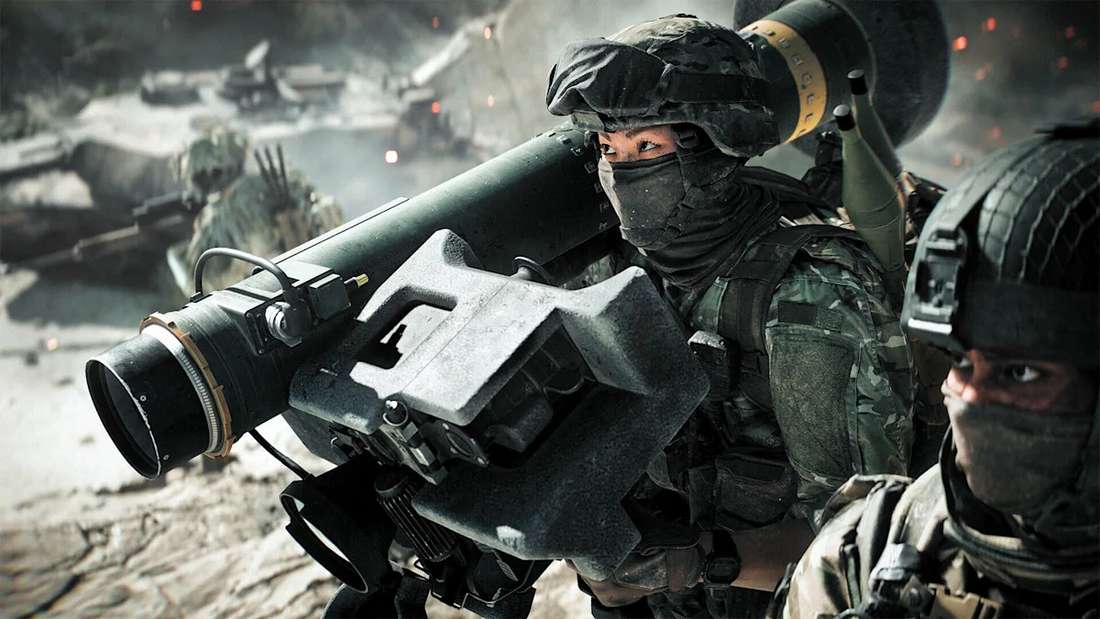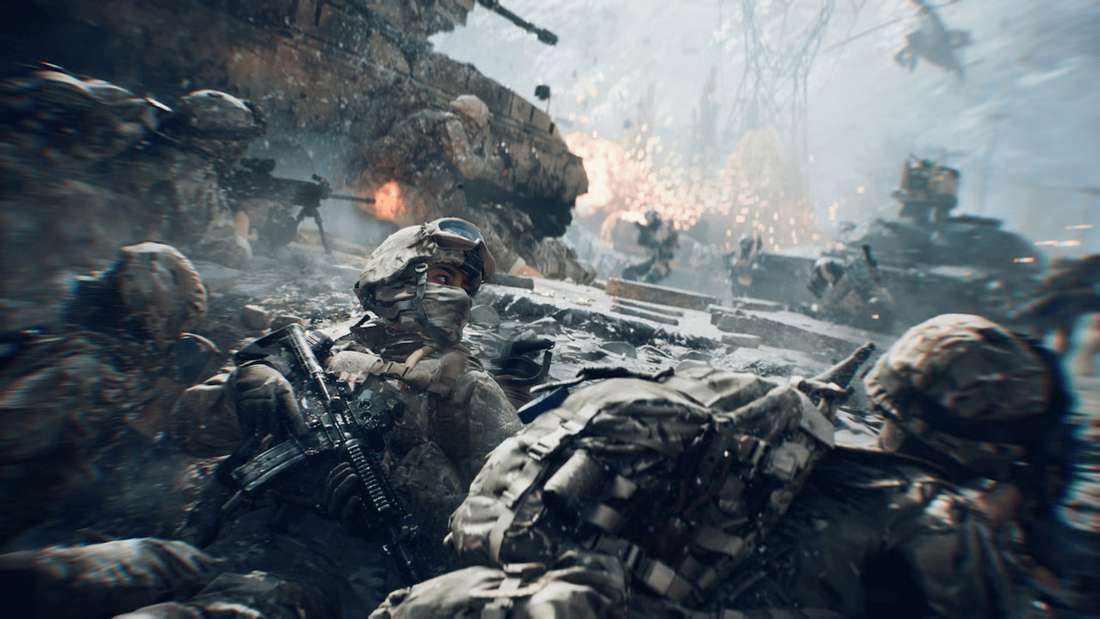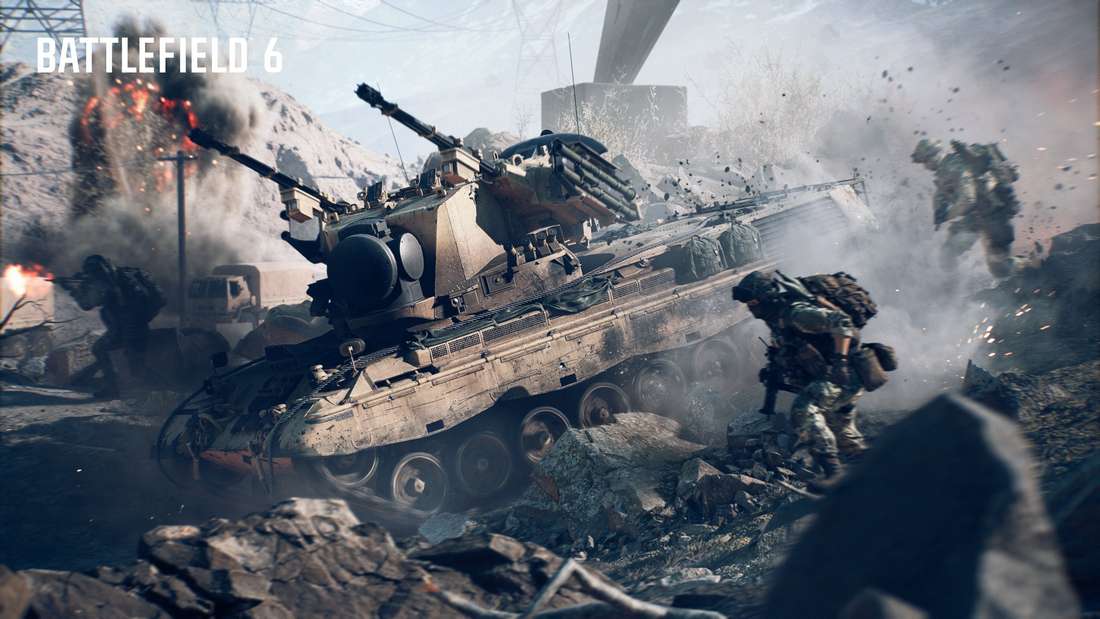 The launch of Battlefield 6, a title hailed for its return to large-scale, all-out warfare, has dominated the conversation in the AAA gaming space. While the core gameplay is robust—featuring high-intensity infantry combat and massive vehicle arsenals—a critical component of the modern first-person shooter experience is noticeably absent: a dedicated, feature-rich companion app. This omission in a premium, flagship release from a major publisher like Electronic Arts (EA) serves as a stark reminder that the industry has prematurely abandoned a truly valuable tool for enhancing the PC gaming and console gaming experience.
The launch of Battlefield 6, a title hailed for its return to large-scale, all-out warfare, has dominated the conversation in the AAA gaming space. While the core gameplay is robust—featuring high-intensity infantry combat and massive vehicle arsenals—a critical component of the modern first-person shooter experience is noticeably absent: a dedicated, feature-rich companion app. This omission in a premium, flagship release from a major publisher like Electronic Arts (EA) serves as a stark reminder that the industry has prematurely abandoned a truly valuable tool for enhancing the PC gaming and console gaming experience.
The phenomenon of the mobile companion application saw its peak around the Xbox 360/PS3 generation, offering genuinely intuitive ways to supplement the main game. These weren’t mere marketing gimmicks; they were utility tools that respected the player’s time. The original Battlefield Companion, for instance, was a masterstroke, allowing players to check detailed statistics, track their progress, and, most importantly, fine-tune their weapon loadouts and specializations outside of the actual game session. This functionality is an essential Quality of Life (QoL) feature that desperately needs a resurgence in the current generation of video game releases.
 The Critical Gap in Modern Gaming Utility
The Critical Gap in Modern Gaming Utility
In a fast-paced game like Battlefield 6, every second counts. The inability to manage one’s gear on a second screen—or while away from the gaming PC or gaming console—forces a suboptimal choice: either delay the match start for the entire squad by adjusting settings in-game, or dive into a Conquest map with an ill-prepared setup. This friction directly detracts from the overall gaming experience. The modern gamer, operating in an ecosystem of high-speed internet and universal mobile access, should demand better from a product featuring a high CPC keyword like “online multiplayer gaming“.
The issue extends far beyond Battlefield. Other major franchises, including Call of Duty, have also seen the practical utility of their companion apps diminish, often pivoting to full-fledged mobile spin-offs like Warzone Mobile rather than focusing on complementary tools. While those mobile titles are successful microtransaction revenue generators, they fail to solve the primary problem a companion app is meant to address: optimizing gameplay efficiency on the primary platform. The shift represents a loss of genuine utility in favor of a separate, monetizable mobile gaming experience.
 The Commercial and SEO Case for Companion Apps in 2025
The Commercial and SEO Case for Companion Apps in 2025
From an industry standpoint, neglecting the companion app is a baffling business decision, especially in a year where SEO and user engagement are paramount. A well-executed companion app offers multiple commercial and structural advantages that directly impact user retention and, by extension, the lifetime value of the customer. The following are key areas where a modern companion app could drastically improve the digital gaming market:
- Increased User Engagement & Retention: By providing a constant, low-friction touchpoint, a companion app keeps the game top-of-mind even when the player is away from their screen. Checking stats or adjusting a “best gaming PC build” loadout during a commute is a powerful form of engagement that leads to greater playtime.
- Data-Driven Monetization Insights: A dedicated app provides a rich stream of user data on player preferences, loadout choices, and engagement patterns, offering invaluable insights for targeted e-commerce and in-game advertising. This aligns with high-value search terms like “gaming laptop deals” or “custom gaming PC.”
- SEO & E-A-T Benefits: A comprehensive, officially supported app builds Expertise, Authoritativeness, and Trustworthiness (E-A-T). It consolidates game-related content, driving organic search traffic for gaming peripherals, patch notes, and meta analysis. This is a critical component for publishers looking to capitalize on “cloud gaming services” and “competitive gaming news” keywords.
- Frictionless Updates & News Delivery: It becomes the definitive source for critical information—patch notes, server status, and competitive schedules—circumventing the noise of social media platforms. This ensures players are always informed and ready to return to the game, promoting a healthy gaming hardware lifecycle.
Battlefield 6 Meta: The Necessity of Remote Loadout Management
The complex “Kinesthetic Combat System” and deep customization options in Battlefield 6 make a remote loadout manager an indispensable asset. Players are constantly searching for the “best Battlefield 6 loadouts” or “ultimate gaming setup 2025,” and the process of theory-crafting and implementation should not be confined to the lobby. The simple fact is that having to navigate complex menus on a large screen, often with a controller in a pre-match countdown, is a barrier to entry for more in-depth customization. The decline of the app has spurred the rise of third-party solutions, like community-made meta companion apps, which proves the player demand exists but is not being officially met (Source: BFHub Community/Reddit).
The ideal application for a flagship title like Battlefield 6 should include, but not be limited to, the following high-utility features:
- Loadout Sync and Editor: The ability to fully create, rename, save, and sync up to 10+ custom loadouts for all specialists and vehicles.
- Performance Tracker: Real-time, detailed statistics for individual weapon performance, K/D ratio, accuracy, and objective score breakdown.
- Community Tools: Integration with official clan/squad management tools and a platform for sharing and rating user-created loadouts.
- Game News Hub: A dedicated, in-depth section for official patch notes, developer diaries, and previews of new “Battlefield Pro Token” content and seasonal releases.
A Call to Innovation: Redefining Cross-Platform Gaming
The industry’s shift towards full mobile games, while commercially sound, has mistakenly categorized the utility app as an obsolete technology—much like the Kinect or early motion controls. However, the core purpose of a companion app—to enhance the main cross-platform gaming experience through convenience—remains deeply relevant. As gaming technology continues to integrate with broader digital ecosystems, the companion app is the perfect bridge. It is a critical component that should be championed by developers. It is time for major publishers, starting with EA and DICE, to look at the massive success of a game like Destiny 2, where the third-party app ecosystem is so strong that it has become an unofficial necessity for managing complex gear inventories. The convenience offered by these out-of-game tools is a competitive edge in the highly-contested, high-CPA market of live-service gaming.
By reinvesting in a robust, official mobile application development for Battlefield 6 and future titles, developers can simultaneously enhance the user experience, drive superior engagement metrics, and establish an authoritative digital property that performs exceptionally well for SEO optimization. The data unequivocally supports the return of the utility-focused companion app; the only thing missing is the corporate commitment.
Final Verdict: Utility Trumps Novelty in Gaming Apps
Ultimately, the saga of Battlefield 6 and the missing companion app is a lesson in prioritizing true player value over ephemeral trends. The demand for efficiency in managing complex digital inventories—be it in a large-scale PC shooter or a massive multiplayer online role-playing game (MMORPG)—is a constant. For the millions who have purchased Battlefield 6, a high-quality, feature-complete companion app is not just a nice-to-have; it is a vital QoL feature that determines how efficiently they can engage with the product. It is time for the industry to embrace this utility again and solidify the companion app as a necessary component of the modern competitive gaming ecosystem

 The Critical Gap in Modern Gaming Utility
The Critical Gap in Modern Gaming Utility The Commercial and SEO Case for Companion Apps in 2025
The Commercial and SEO Case for Companion Apps in 2025